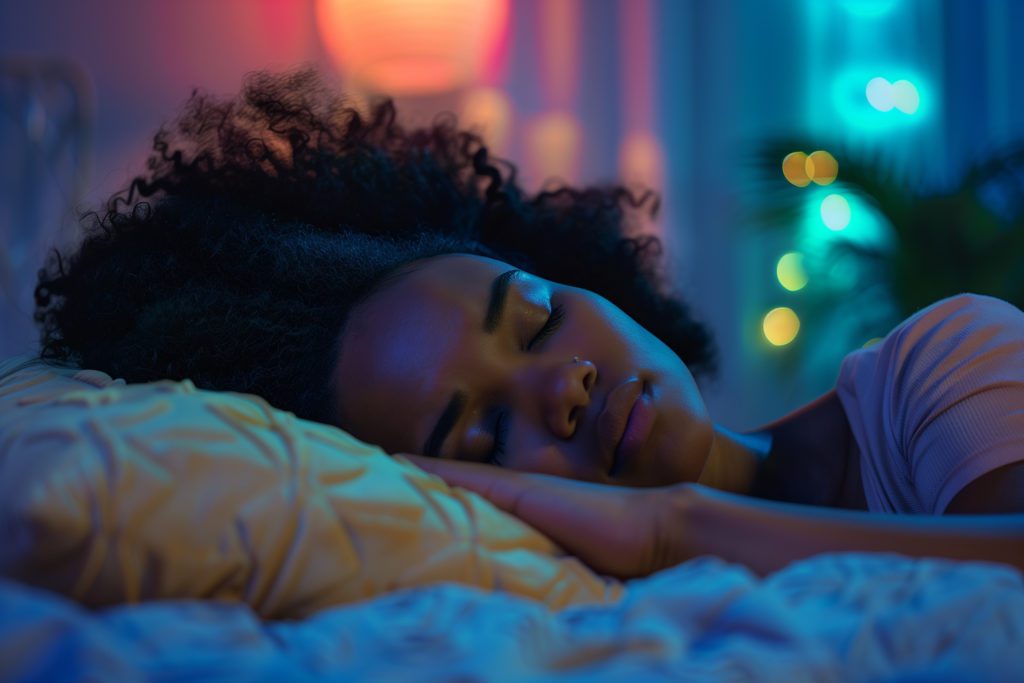
Dreams and Time Perception: How Dream Time Differs from Real Time
Dreams often seem to stretch on for longer than they last in the real world. Explore the research surrounding this phenomenon.

Have you ever awoken during the night, gone back to sleep, had a dream that seemed to span hours, then woke up again only 10 minutes later? This phenomenon isn’t unusual when it comes to dreams, offering yet another layer to the mystery surrounding them.
As it stands, scientists know very little about dreams—instead, they have a lot of theories, such as why dreaming occurs and what different dreams may mean. Along these same lines, not much is known about why the timing in dreams differs so much from real life, but there are still theories about it.
Dream Time vs. Real Time
It all started back in the 19th century when Alfred Maury had a dream where he traveled back to the French Revolution, was found guilty of treason, and was sentenced to beheading by guillotine. However, just as the blade was shooting toward his head, he woke up with a pain in his neck and found that the canopy surrounding his bed had collapsed, which sent a rod onto his neck.
This experience by Alfred Maury caused him to theorize that the entire dream took place as the rod collided with his neck, offering the first written account where it was suggested that dream time differs from real-time.
Over 150 years later, we’re still exploring dream time elasticity.
One theory for why dreams seem to last longer is that brain activity slows during REM sleep since the brain is at a lower temperature, which causes the dream scenario to move at a slower pace.
Yet another theory is that the brain knows certain actions require more effort than others, and since our muscles cannot provide feedback since most are paralyzed during REM sleep, the brain simulates this effort by making certain actions take longer.
However, these suggestions are only theories, and more research is needed before anything more conclusive can be decided upon.
The Help Of Lucid Dreaming
When it comes to understanding the correlation between real-time and dream time, scientists used the help of lucid dreamers.
Lucid dreaming is a phenomenon where the dreamer is aware that they are dreaming and can consciously influence the content of their dream and what they do during the dream. With this control, lucid dreamers were able to help scientists understand how time differs in these two planes.
Scientific studies found that timing differences in dreams arise between cognitive tasks and motor tasks. For example, when participants were asked to do a mental task, such as counting to ten, it took the same amount of time in the dream as it did in the real world. In comparison, doing a motor task like knee bends took longer in dream time than in real-time.
As for why this is, scientists speculate that it’s because the lack of muscular feedback or slower processing of the brain during a dream makes motor tasks take longer to complete. As such, these findings suggest that, in our dreams, we move in ‘slow motion.’
However, one challenge with these findings is that these longer times required to perform motor tasks may be a trait unique to lucid dreamers—it’s hard for scientists to be sure.
How Long Do We Dream For Each Night?
It’s estimated that the average person spends 2 hours dreaming each night, which can seem surprising when your dreams feel like they stretch on for longer.
Even more, the later in the night it is, and thus, the more time you spend in REM sleep, the more detailed dream reports become. In one study, the researchers found that participants had long and complex dreams after 10 minutes of REM sleep later in the night, and some of their dreams were even divided into multiple episodes.
Research also suggests that dreams from the REM stage of sleep are longer than NREM dreams, along with being more emotional, bizarre, and story-like.
Why Do My Dreams Occur Right Before I Wake Up?
Have you ever been frustrated to wake up before your dream finally gets to the good part? While aggravating, there’s a likely reason for this—we dream during rapid eye movement (REM) sleep, which becomes more abundant as the night goes on and as we approach our waking time.
Thus, the more time you spend in REM sleep, the more likely you are to be dreaming, and the more likely you are to be awoken from your dream when your alarm goes off.
The Challenge in Studying Dreams
When it comes to dreaming, it’s hard for scientists to draw solid conclusions because most dream content research relies on information that is self-reported, which can be unreliable. On top of that, not everyone remembers their dreams when they wake up, which can make it even harder for scientists to estimate how long each dream lasts or conclude if the perception of the dream’s length matches the true amount of time that someone was dreaming.
Furthermore, time perception may change based on the dream. Some dreams may last the same amount of time in the dream as in the real world, but then the next dream may seem to last significantly longer.
Ultimately, there’s no clear consensus on how long dreams last.
Understanding the Dream Time Paradox
If there’s one thing that we know about dreams, it’s that there’s a lot we still don’t know.
Anecdotal evidence suggests that, in some cases, dream time lasts longer than real time, whereas in other cases, it is very similar. Still, even if the times may not align exactly, one researcher, William Dement, did find that the longer someone was dreaming—measured based on how long their eyes were moving rapidly during sleep—the longer they perceived their dream to be. They may still have thought their dream lasted hours when they were only dreaming for a few minutes, but the ratio existed in nearly any case—a longer time spent dreaming correlated to a longer time perceived dreaming.
However, we also know that some tasks appear to take longer in dreams than others, which may also be why some dreams seem to last longer than others. Ultimately, only speculation is available on why these tasks take longer.
Thus, the dream time paradox is born, where dreams can appear to last considerably longer than the individual is asleep. We may not fully understand why it occurs, but that doesn’t have to stop us from leaping into our dreams each night—who knows where they might take you, and for how long.
FAQ
Why do my dreams feel like they last for hours when I was only asleep for a few minutes?
Your brain processes information differently in dreams, and certain tasks—like running or fighting—seem to take longer. This “slow-motion effect” can make short dreams feel much longer.
Is lucid dreaming real, and can I learn how to do it?
Yes! Some people train themselves to recognize when they’re dreaming and control their dreams. Techniques like reality checks and dream journaling can help increase lucid dreaming.
Can external noises influence what I dream about?
Yes! If your alarm, a conversation, or even a TV show is playing while you sleep, your brain might incorporate those sounds into your dream storyline.
Do people who don’t remember their dreams still have them?
Absolutely! Everyone dreams, but some people wake up too quickly or don’t focus on remembering their dreams, causing them to fade before they can recall them.
Why do I sometimes feel like I’m watching my dream instead of living it?
Your perspective in dreams can shift—sometimes you’re fully immersed, and other times it feels like you’re an observer watching a story unfold from the outside.

Written by
Jessica G
Medical writer freelancer who has written hundreds of articles on varying topics. Masters of Engineering degree in Biomedical Engineering.
Download Pillow
Get help
Press & News
Legal
Connect
X (Twitter)
Company
Copyright © Neybox Digital Ltd.



